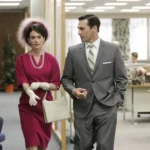It seems that every day of the year is national ‘something or other’ day. Ice cream, doughnuts, puppies, you name it; a post in my Facebook feed will attribute a day to it at some point.

But January 2nd was the day of something that honestly deserves 24 hours pledged to it; Science Fiction. The 2nd was chosen as Sci-fi’s time in the sun as it’s the birthday of author Isaac Asimov. If you don’t know who he is, you’re clearly only reading this because you clicked the wrong link.
As a genre, Sci-fi shares a lot of similarities with fantasy, to the point that certain elements from one genre can show up in another (yes I did just link to my own article).
The difference is what the genres tend to examine. With fantasy, we look at the current day through a different filter. For example, reading Harry Potter apparently, makes you a better person. The series tackles racism by putting a wizard hat on it and showing how absurd it is using different context.
So if fantasy dissects the here and now, Sci-fi examines what might happen in the future. When you sit down to plot your future setting you’re imagining how society might develop with space travel or advanced technology. When done right, this is Sci-fi at its best instead of it being fantasy with magic swapped for science. Star Trek, for example, shows us a largely utopian society created when first contact forced humanity to unite. Then you have Firefly, which concludes that humanity wouldn’t solve all of its problems simply because we have sick spaceships.
However, Sci-fi can be used for more than just speculating the future of humanity. Because, as much as writers like to talk about the ‘themes’ of their work, that’s not what’s most important. After all, we read to be entertained. As with all fiction, the main point of Sci-fi is to entertain the people reading or watching. Remembering or forgetting this is the difference between the prequel Star Wars movies and, say, Rogue One.
In the prequels, George Lucas bought too much into his own reputation and the result was a lot of sitting and talking. Mostly this is about galactic politics or trade with the occasional reference to awesome off-screen adventures that sound much more interesting. As a result, audiences were not forgiving when it came to plot holes. Plot holes such as Grievous being a prolific Jedi killer even though he has no defence against being Force pushed. Meanwhile Rogue One’s well-paced action and deep characters make you forgive the fact that the Stormtrooper armour is apparently made of cardboard. Seriously, what is the point of body armour that doesn’t even protect you from blows to the head?!
*Takes a deep breath*
Okay, nerd rage under control, let’s continue.
A unique aspect of Star Wars isn’t the order of space wizards or battle stations that can blow up planets. It’s that the existence of other species is of no curiosity. There are no major plot threads in the franchise regarding first contact. Other species are just there and no attention is drawn to it. The existence of other species tends to be of huge importance in many Sci-fi franchises. Even if first contact has already happened, the relationships between the species tend to be of massive importance.
In the Mass Effect franchise, many of the critical plot threads revolve around how one species views another. Humanity is still relatively new to galactic society and we want more say. As a result, most species merely put up with us while many outright hate us. One of the things that motivate the villain of the first game to go down the path of madness is how much he hates humans. In this respect, Sci-fi is a good way to look at humanity as while; through the eyes of aliens. After all, things that we rarely think about suddenly require examination when it’s an alien wondering why we do what we do.
In this respect, Sci-fi’s come a long way; our portrayal of aliens has gone from universally hostile monsters to people with their own wants and needs. Fiction is an art form and, like all art forms, it changes over time. Audiences grow more genre-savvy and demand deeper characters and stories. True, the Fast and Furious franchise proves that this isn’t a universal shift; people will always want the fiction equivalent of candy floss. Still, it shows us the good that Sci-fi can do and why it deserves a day in its honour.
As mentioned above, fiction can make you a better person if done right. Get invested in the story and you might end up absorbing some of the principles of the heroes. Sci-fi is especially good at getting you to consider viewpoints and possibilities that you never thought of before. Done right, Science Fiction can broaden your outlook on life and, that alone, is worth the price of admission.
So if you want to broaden your mind, pass over that philosophy book and grab a Sci-fi novel instead; it’ll work out better.
It’s true, it’s on the internet.








You had to mention Firefly. I am still in mourning you know. I love both fantasy and Sci-fi. But when it comes to reading it is definitely fantasy. Or a commingling of them both. Hell, sometimes when I write I say I only write fantasy but Sci-fi just sneaks in there. For example, alternate worlds can be extremely advanced. Sci-fi or still fantasy. Or both? I’ll call it one and enjoy it for what it is… awesome either way.